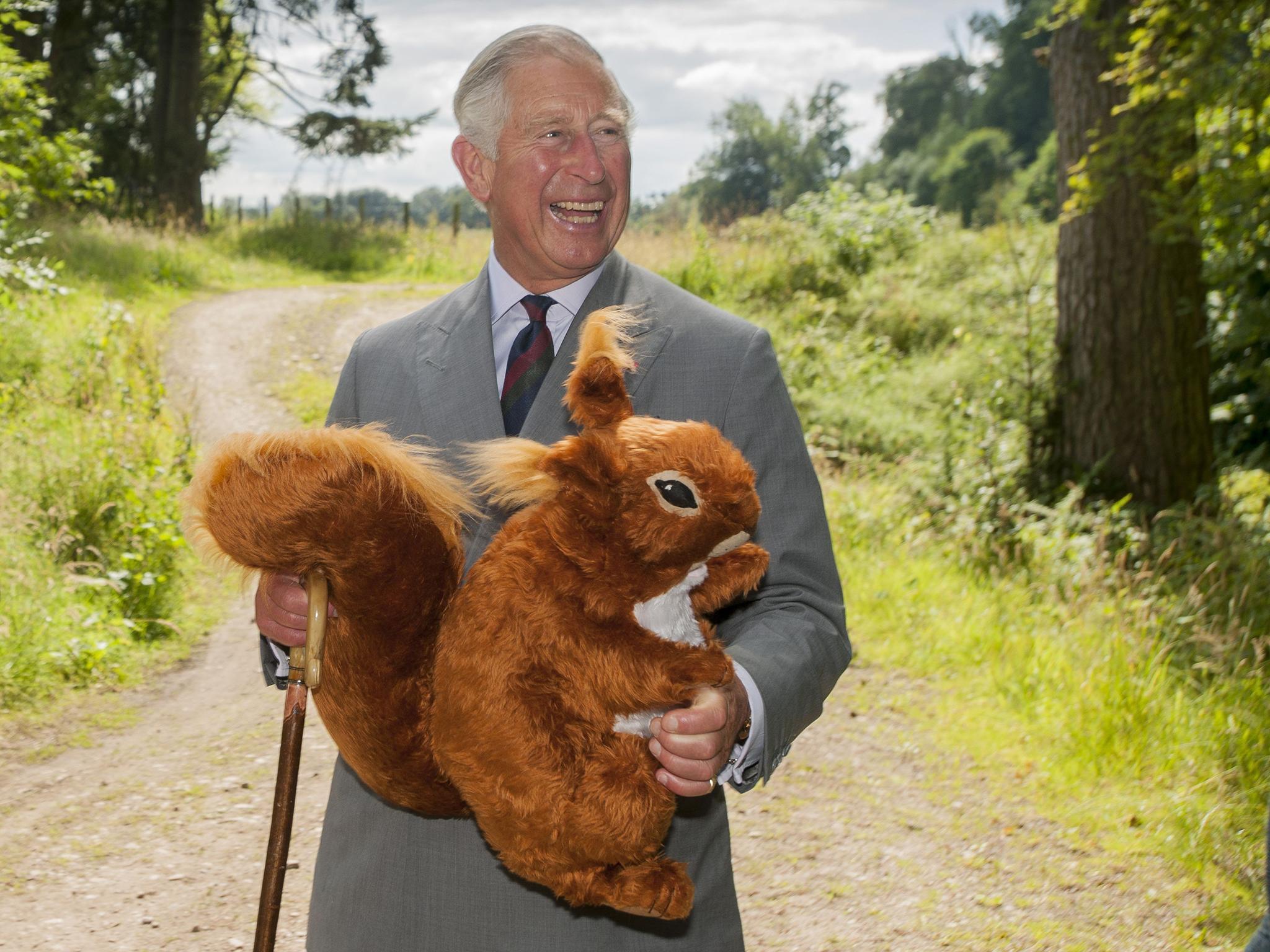If Prince Charles wants everyone to love the countryside, he could start by giving some back
If landowners like him regarded the countryside as belonging to all of us, the gulf between urban and rural would narrow


Last weekend, deep in rural North Yorkshire, we went searching for the last of the season’s sloes in the hope of topping up supplies for our Christmas sloe gin. Our route took us along designated footpaths along the fringes of farmers’ fields and off piste – into ditches and along streams – in the hunt for the berries. We could have walked for miles on open-access land – some of it owned by farmers, but still free for the right to roam – in an Area of Outstanding Natural Beauty. But there were also plenty of warnings to us not to go on to private land – an electric fence to keep the cows in and us out, or a huge stone wall blocking our way.
There we were, up from London for the weekend, metropolitan-dwellers desperate to soak up some of Britain’s beautiful countryside before returning to the concrete and traffic of the city. But does our appreciation of North Yorkshire’s hedgerows count?
The Prince of Wales, in an article for Country Life, says most people in Britain have “lost any real connection” with rural ways. The majority of the public are “four or more generations removed from anyone who worked on the land – and it frequently shows in their attitudes”. Townies and city-dwellers like me “have only a vague understanding” of farming and are “outsiders looking in … increasingly suspicious of it”.
In a way, Prince Charles is right – about me in particular and the population in general: there is a widening gulf between, on the one hand, farming and rural communities, and, on the other, us urbanites. I may know, for example, that by mid-November the sloes have all but disappeared from hedgerows (as our near-empty bags at the end of the walk testified), but I wouldn’t know what to do if I came across a herd of cows around the next corner.
It is true that fewer people work on the land than a century ago – not surprising when you think of how our country is becoming increasingly urbanised. Prince Charles says our collective disconnection with the land is making us value it less, and the risk is that we will lose what we treasure – the beautiful landscapes, hedgerows and village pubs. When it comes to, for example, the price of milk, which is dictated by mass production and supermarkets rather than farmers, and how little we understand about the rearing and slaughter of cattle, he may be right. But is it our fault, as the Prince suggests?
When Prince Charles talks about us “outsiders” being “suspicious” of farming and the countryside he seems to do so with the sneer of a landowner rather than an heir to the throne with a serious message for his future subjects. How can a nation truly understand its own countryside when so much of it does not belong to we who are – in the literal sense, the commoners? There may be a real point to erecting electric fences and walls to stop trespassers from disturbing cattle or trampling over crops, but so much land is out of bounds when it does not need to be.
Over centuries, through the enclosures, millions of acres of common land were seized by wealthy landowners: a countryside turned over to a small elite. We have a public right to roam, but it is restricted, not free. Prince Charles sees us as “outsiders” because that is what we are, in his eyes. To him, we are the wrong side of the electric fence, but he doesn’t want to take it down. If landowners like him regarded the countryside as belonging to all of us, the gulf between urban and rural would narrow. And if farmers did more to engage with the public – not just with local rural communities but the wider population, including weekending urbanites like me – then we would understand each other better.
There is an event called Open Farm Sunday, run by the organisation Linking Environment and Farming, where the public are welcomed through the gates of nearly 400 farms nationwide, but that is just one day a year. Then there are the vast country estate owners who open their houses and farm shops to the public, but at a high price for a daily ticket.
And it is not just the historic injustice of enclosures that has robbed us of common land. The Government is trying its best to erode our rights over what is left to us. According to the Open Spaces Society, ministers are resisting amendments to exempt commons and public paths from a measure in the Infrastructure Bill to allow government agencies to transfer surplus land to developers. If this passes through Parliament without the protection of those amendments, local authorities and government could seize public spaces for development.
There may be a huge demand for housing, but there is, as the OSS argues, enough brownfield land – particularly in land banks – fit for development without losing our commons. In his article, Prince Charles talks of the countryside as a “rich, natural tapestry” that risks unravelling. But it is not we, the common people, who are pulling at its threads.
Join our commenting forum
Join thought-provoking conversations, follow other Independent readers and see their replies
Comments